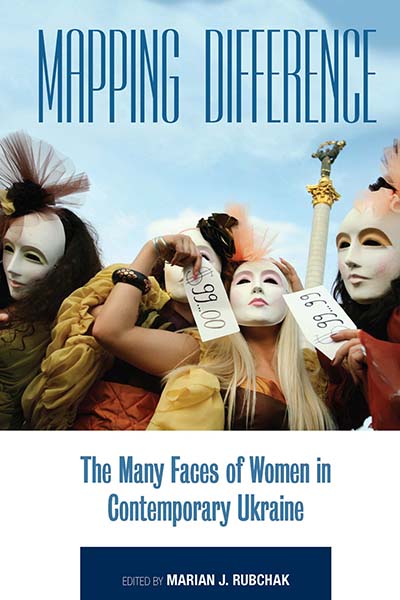
Readings on Abortion



by Cecília Tomori
For World Breastfeeding Week, we’re delighted to offer FREE access to a chapter from Nighttime Breastfeeding for a limited time. Click here to access this chapter, titled Embodied Cultural Dilemmas: An Anthropological Approach to the Study of Nighttime Breastfeeding and Sleep.
Nighttime Breastfeeding addresses the central question: why do so many American parents struggle with nighttime breastfeeding and sleep? I set out to answer this question, which emerged from my preliminary fieldwork, using the classic anthropological technique of participant observation. I spent many months immersed in fieldwork, and then many more surrounded by all the materials I had collected – piles of fieldnotes to interview recordings, brochures, photos, and, most importantly, memories of being with families who have graciously let me into their lives. I revisited key moments over and over again – recalling certain phrases, pauses, and gestures, which I could examine through the lenses offered by my anthropological training. Continue reading “Why do so many American Parents Struggle with Nighttime Breastfeeding and Sleep?”
As we enter a New Year full of political and economic uncertainty, opportunities in education, and the integrity of evidence-based opinion and decision-making are under attack globally from a populist but neo-liberal philosophy seeking to advance, with depressing success to date, the cause of individualism over the social fabric.
While there will continue to be questions over the character, competence and temperament of many of the world’s political leaders over the coming years, Berghahn will continue to champion the values of accessible scholarly learning, and the spirit of protest, reform, equality and tolerance.
To that end, and with the Women’s March on Washington in mind, we are delighted to offer, in the form of a New Year tonic, a 60% discount off all Gender Studies titles, purchased via our website over the next 7 days. At checkout, simply enter the code NYGEN17.
The books featured below form just a small selection from our complete list of Gender Studies titles. For a full list, please visit our website.
 A look into the life of post-Soviet Ukrainian women, Mapping Difference: The Many Faces of Women in Contemporary Ukraine is now available in paperback. This book uncovers the virtues of women that sometimes lie just beneath negative gender stereotypes. Following, editor of the collection, Marian Rubchak, gives readers a deeper look into the volume via the book’s cover.
A look into the life of post-Soviet Ukrainian women, Mapping Difference: The Many Faces of Women in Contemporary Ukraine is now available in paperback. This book uncovers the virtues of women that sometimes lie just beneath negative gender stereotypes. Following, editor of the collection, Marian Rubchak, gives readers a deeper look into the volume via the book’s cover.
_________________________________
Since the demise of the Soviet “Empire of Nations”[i] in 1991 Ukraine’s women have lived in a world largely shaped by the rejection of communist values and efforts to transform a moribund socialist system into an open democratic society. Early in the transformative period this society gave rise to a small core of female activists who chose to work within the existing system, with its traditional values, to effect the changes that would return their voice to women. Although they disavowed the label of feminist as a self-descriptor their agendas clearly reflected feminist principles.
FEMEN is a Ukrainian feminist protest group that has become infamous for its topless protests against patriarchy. The group, founded in 2008, has since grown to be a worldwide phenomenon, and not simply because its protests are often seen as “sextreme.” Marian Rubchak, editor of Mapping Difference: The Many Faces of Women in Contemporary Ukraine, takes a look into the history and meaning of the movement, and asks: Where is it going?
________________________________________
The year was 2008; 17 years had passed since Ukraine declared its independence and early advocates of change began to espouse high-minded ideals designed to promote women’s rights. These incipient feminists laid the groundwork for raising an awareness of discrimination against women, and were instrumental in advancing the passage of some of the most progressive pro-women legislation Ukraine had yet seen. Fast forward to 2008 — the promising beginnings were moving very slowly, too slowly. Clearly the work of reform would need to proceed to a higher level.
On May 21, 2013, in Tel Aviv, the Heart at East Lifetime Achievement Plaque was bestowed upon Prof. Smadar Lavie. Her scholarly and activist voice for the rights of Mizrahi Jewish women living in Israel received formal recognition. Lavie’s two decades of ethnographic research and community leadership to better the lives of those within these populations not only earned her the award, but also led her to write Wrapped in the Flag of Israel, to be published in April 2014. Below, Lavie explains why Heart at East is significant—both within the State of Israel and for herself.
________________________________________________________
— Photo by Jutta Henglein-Bildau
I was so thrilled to receive Facebook messages from Reuven Abarjel, co-founder of the Jerusalem Black Panthers, and Shira Ohayon, a longtime Mizrahi feminist and educational director of Israel’s Andalusian Orchestra, that I was to be awarded the Heart at East Lifetime Achievement Plaque in May 2013.
Continue reading “‘Wrapped in the Flag of Israel’ Author Earns Heart at East Award”

What inspired the project?
Ursula Tidd: As far as I was concerned, I was keen to show the immense relevance of Beauvoir’s thought to film studies and hence, to take her work more deeply into the area of film studies. I have noticed that Beauvoir’s work is often implied in discussions in film studies about ‘the male gaze’ and on the topic of gender relations more broadly, but not always made explicit in what it contributes to the debates.
Jean-Pierre Boulé: A desire to use The Second Sex to show that Beauvoir still has a lot to say about human relationships.
How did you hope it might influence the field?
J-PB: For people to go back to or discover Beauvoir and realise that she has a place in film studies.
UT: I hope that this volume will inspire more people to look at film through Beauvoirean eyes, so to speak! And to engage more closely with her phenomenologically-based philosophy on gender and ageing.
Which aspect of co-editing did you find most difficult?
J-PB: Not difficult as such, but bearing in mind a student readership, making the volume accessible to them. And choosing the front cover photograph.
UT: Yes, it’s important to keep in mind the future readership of a volume like this – although one can’t please everyone…
Would the films discussed be the kind of films Simone de Beauvoir would be interested in?
UT: For sure! Beauvoir was highly eclectic in her cultural interests and an avid film-goer, at least for most of her life. She enjoyed art house as well as Hollywood cinema so I think that all the films discussed would have engaged her.
J-PB: Absolutely! I like to think she would have liked the various genres under study, as she herself wrote in a variety of genres. I think she would have loved Revolutionary Road, set in 1955, with its story of oppression and liberation.
______________________________
Jean-Pierre Boulé is Professor of Contemporary French Studies at Nottingham Trent University.
Ursula Tidd is Senior Lecturer in French Studies at the University of Manchester.
Existentialism and Contemporary Cinema: A Beauvoirian Perspective was published by Berghahn Books in September 2012. A companion volume, Existentialism and Contemporary Cinema: A Sartrean Perspective, edited by Jean-Pierre Boulé and Enda McCaffrey, is also available from Berghahn Books.
European Foundations of the Welfare State, by Franz-Xavier Kaufmann, translated by John Veit-Wilson, foreword by Anthony B. Atkinson
Fortune and the Cursed, the Sliding Scale of Time in Mongolian Divination, by Katherine Swancutt
Investigating Srebrenica: Institutions, Facts, Responsibilities, edited by Isabelle Delpla, Xavier Bougarel, and Jean-Louis Fourn
Journeys into Madness: Mapping Mental Illness in the Austro-Hungarian Empire, edited by Gemma Blackshaw and Sabine Wieber
Learning from the Children: Childhood, Identity and Culture in a Changing World, edited by Jacqueline Waldren and Ignacy-Marek Kaminski
A Lover’s Quarrel with the Past: Romance, Representation, Reading, by Ranjan Ghosh
The Making of the Pentecostal Melodrama: Religion, Gender and Media in Kinshasa, by Katrien Pype
Ordinary Lives and Grand Schemes: An Anthropology of Everyday Religion, edited by Samuli Schielke and Liza Debevec
The Politics of Educational Reform in the Middle East: Self and Other in Textbooks and Curricula, edited by Samira Alayan and Achim Rohde, and Sarhan Dhouib
Revisiting Feminist Approaches to Art Therapy, edited by Susan Hogan
 Berghahn recently published Revisiting Feminists Approaches to Art Therapy, edited by Susan Hogan. It is both an update and an expansion of the earlier work Feminist Approaches to Art Therapy, first published in 1994. Here, Hogan addresses her reasons for revisiting her seminal work and explains why the topic is just as relevant today.
Berghahn recently published Revisiting Feminists Approaches to Art Therapy, edited by Susan Hogan. It is both an update and an expansion of the earlier work Feminist Approaches to Art Therapy, first published in 1994. Here, Hogan addresses her reasons for revisiting her seminal work and explains why the topic is just as relevant today.
“Why do we need a book about women’s issues?” I am often still asked. Feminism is the principle of advocating social, political, and other rights of women as equal to those of men. It is necessarily interested in the question of equality. Creating a deep understanding of women’s conditions and women’s experience is one rationale for a volume specifically addressing this subject.
Another raison d’être of all my work in the field of art therapy is to challenge the reductive, and potentially damaging use of psychological ideas in art therapy practice. Continue reading “Susan Hogan on Revisiting Her Groundbreaking Work on Feminist Art Therapy”